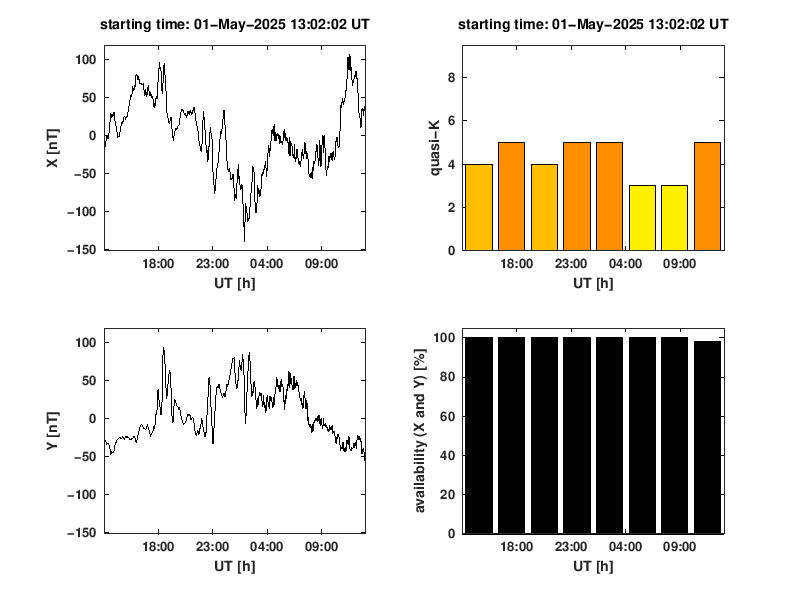
The quasi-K-index is automatically calculated without human control.
Method: Use the north (X) and east (Y) components of the magnetic field (1-min values). For each 3-hour period during the latest 24 hours, calculate the ranges max(X)-min(X) and max(Y)-min(Y). The larger of these values defines the quasi-K-index according to the following limits, specific for Nurmijärvi (60.50 N, 24.65 E):
range 0 7 15 30 60 105 180 300 495 750 nT K 0 1 2 3 4 5 6 7 8 9Example: range = 40 nT, K = 3.
The official K-index is calculated using the field from which the regular daily variation is subtracted. For the quasi-K-index, we do not attempt to determine the regular curve. Note also that the K-index is defined for 3-hour UT intervals 00-03, 03-06, ... , 21-24, whereas the quasi-K-index is given at irregularly placed 3-hour sections.
Occurrence (%) of the K-index at Nurmijärvi in 1953-2016:
K = 0: 13.08 K = 1: 26.67 K = 2: 28.21 K = 3: 19.29 K = 4: 8.08 K = 5: 2.89 K = 6: 1.04 K = 7: 0.43 K = 8: 0.16 K = 9: 0.13
Verbal descriptions of the activity level:
K = 0,1: quiet K = 2,3: unsettled K = 4: active K = 5: minor storm K = 6: major storm K = 7: severe storm K = 8,9: giant storm